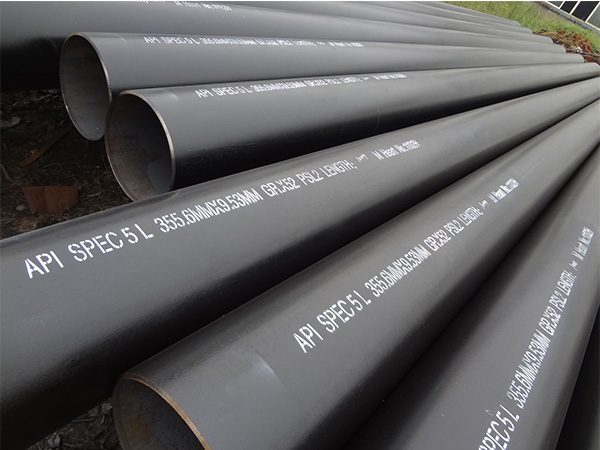
Main chemical components (taking Grade B as an example)
Chemical composition table of pipes
|
TYPE |
C(max) |
Mn(max) |
P(max) |
S(max) |
Si(max) |
V/Nb/Ti(max) |
|
Welded pipe(BM) |
0.22% |
1.20% |
0.025% |
0.015% |
0.45% |
0.06%/0.05%/0.04% |
|
Seamless pipe(BR) |
0.24% |
1.20% |
0.025% |
0.015% |
0.40% |
0.06%/0.05%/0.04% |
Mechanical properties and toughness (taking Grade B as an example)
Yield strength: 35,500-65,300 Psi, mainly depending on the specific grade of the pipe. The higher the grade, the higher the yield strength.
Tensile strength: 60200-95000 Psi. The tensile strength of the weld seam of the welded pipe shall not be less than 60200 psi.
Elongation: Complies with API specifications (commonly ≥ 20-30%).
Impact toughness (CVN) : The standard requires an average of ≥ 27 J (20 ft-lb) at 0 °C.
Size range:
Seamless from 2″ NPS to 36″ OD
ERW from 2″ NPS to 24″ OD
DSAW from 20″ to 48″ OD
Inspection and Testing
Chemical analysis: Strictly control C, P, S and carbon equivalent to ensure welding performance and crack resistance.
Mechanical property tests: including yield strength, tensile strength, elongation, etc. PSL2 has an upper limit standard.
Charpy low-temperature impact test: For pipes with a diameter of ≤762 mm, the minimum impact value is 27 J/0°C; For pipes larger than 762 mm, the minimum impact value is 40 J.
Water pressure and non-destructive testing: Each pipe must undergo 100% water pressure testing and NDT inspection.
Bending test: No cracks shall occur at any part of the specimen, and no openings shall appear in the welds.
Summary
The API 5L PSL 2 pipe is suitable for pipeline transportation in high-pressure, low-temperature or harsh environments (such as at sea, in environments containing H₂S). Its advantages lie in precise chemical control, high strength, good toughness and strict testing guarantee, and it is widely used in oil, natural gas and hydraulic transportation projects. Compared with PSL1, its comprehensive reliability and safety have been significantly enhanced, and it is often used in trunk transportation, pipeline engineering in complex geological or environmental conditions.